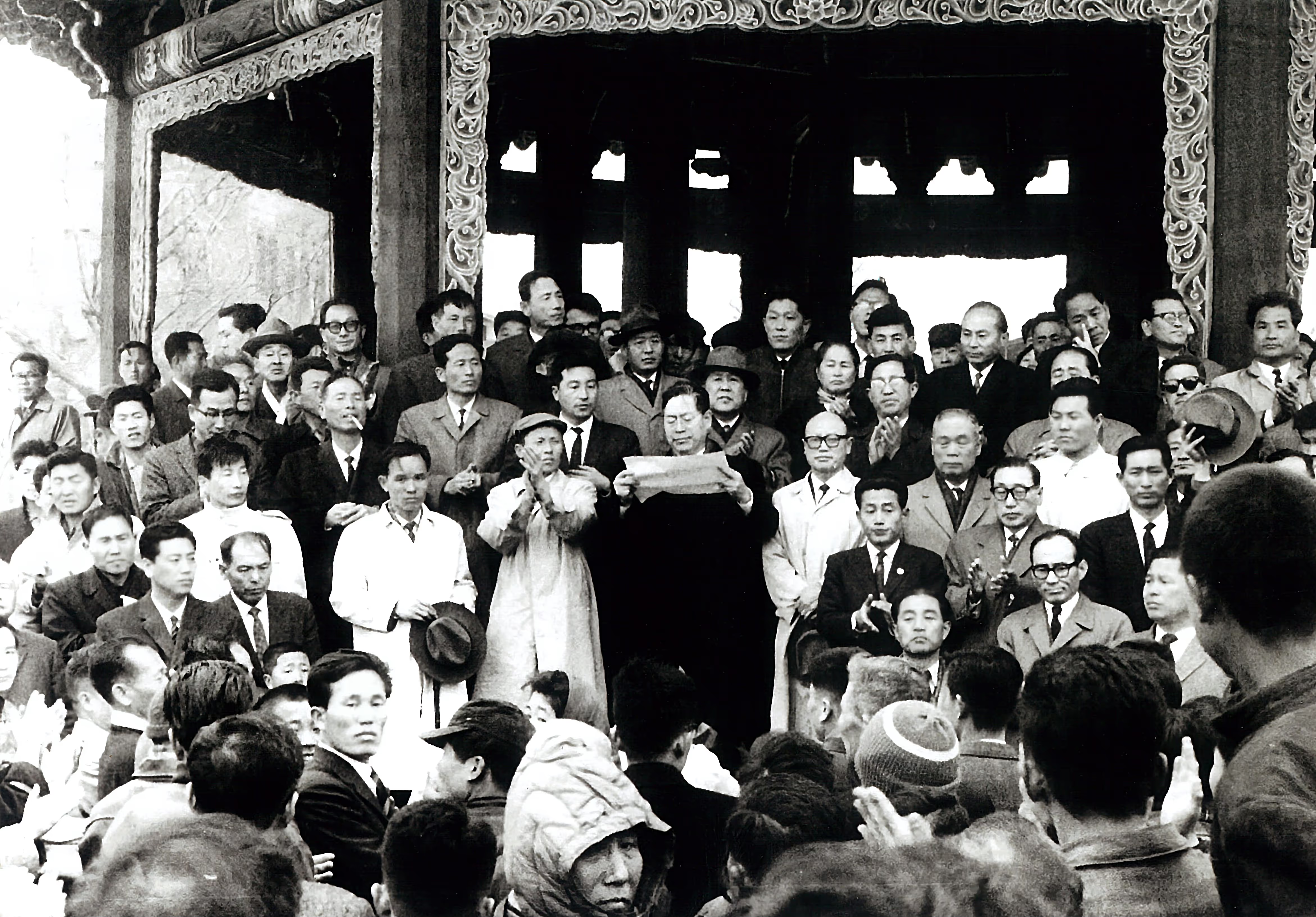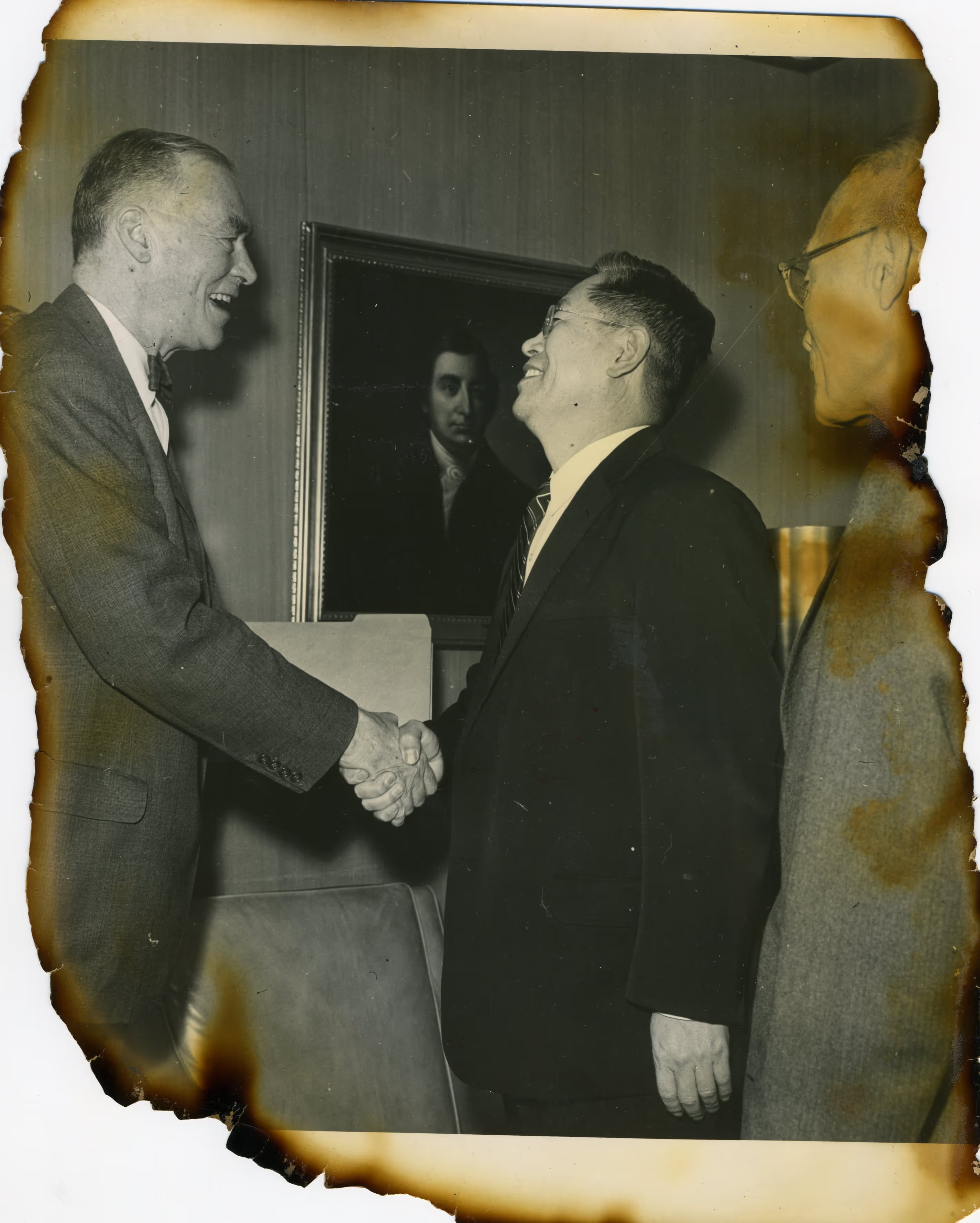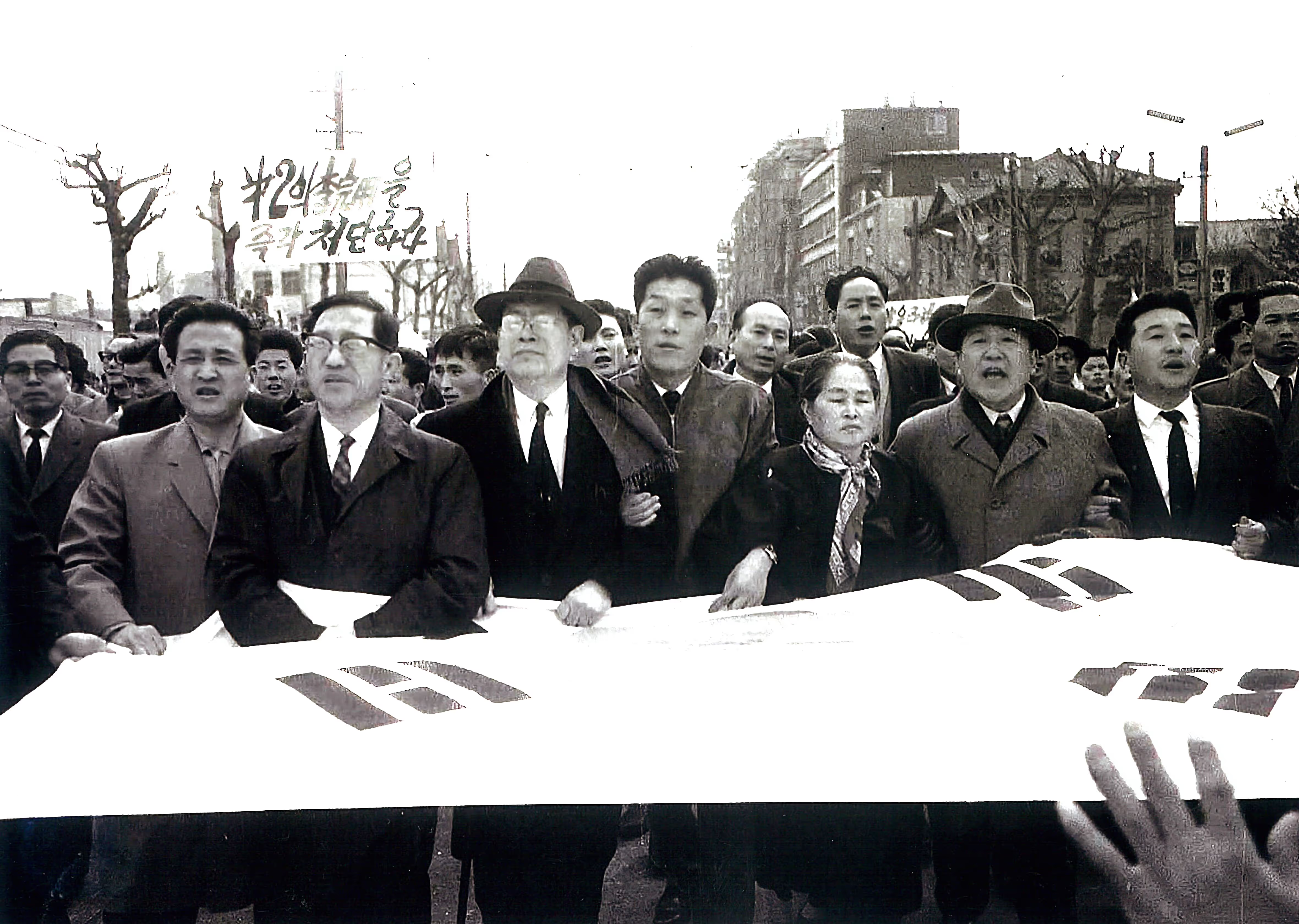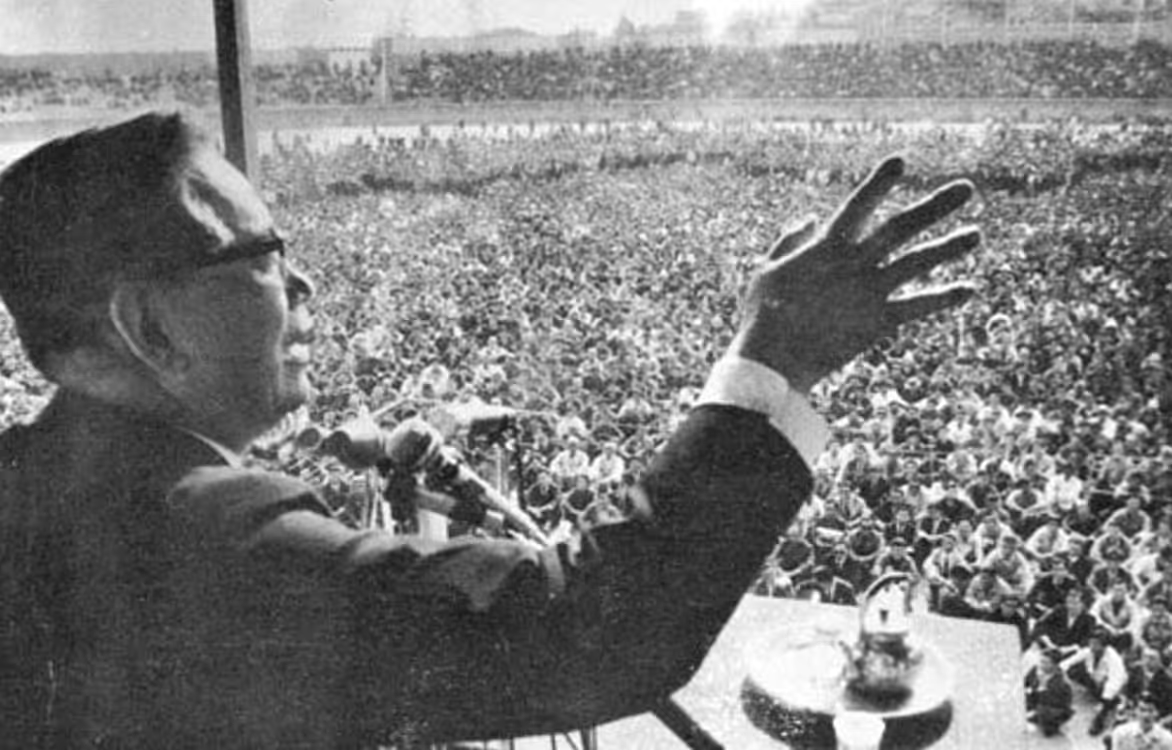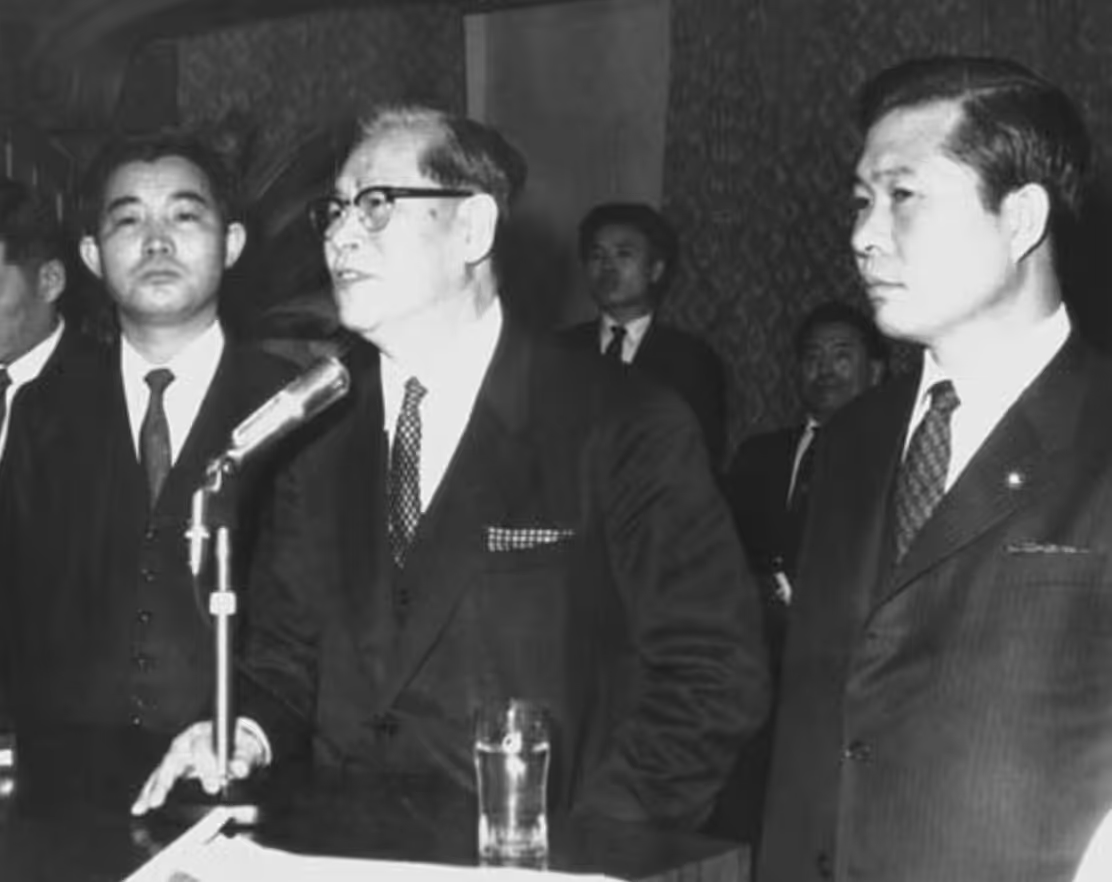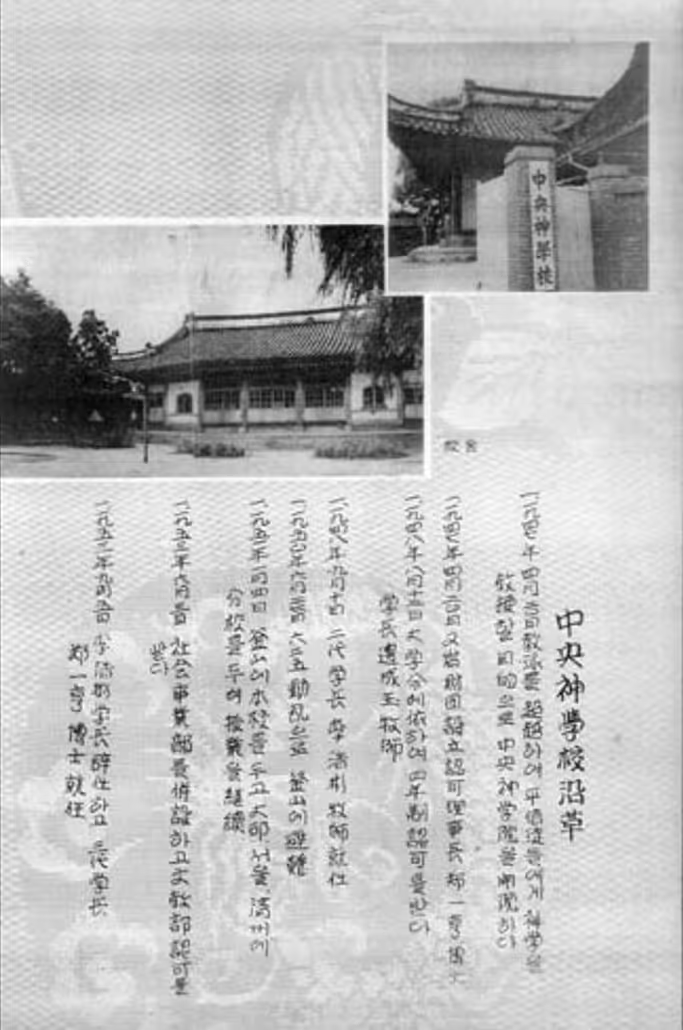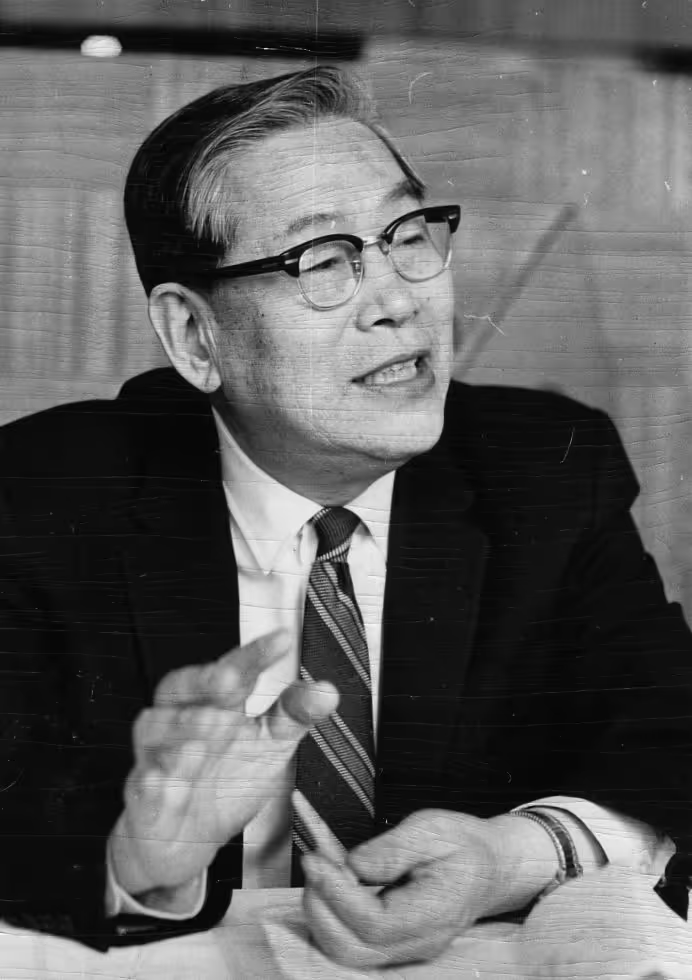
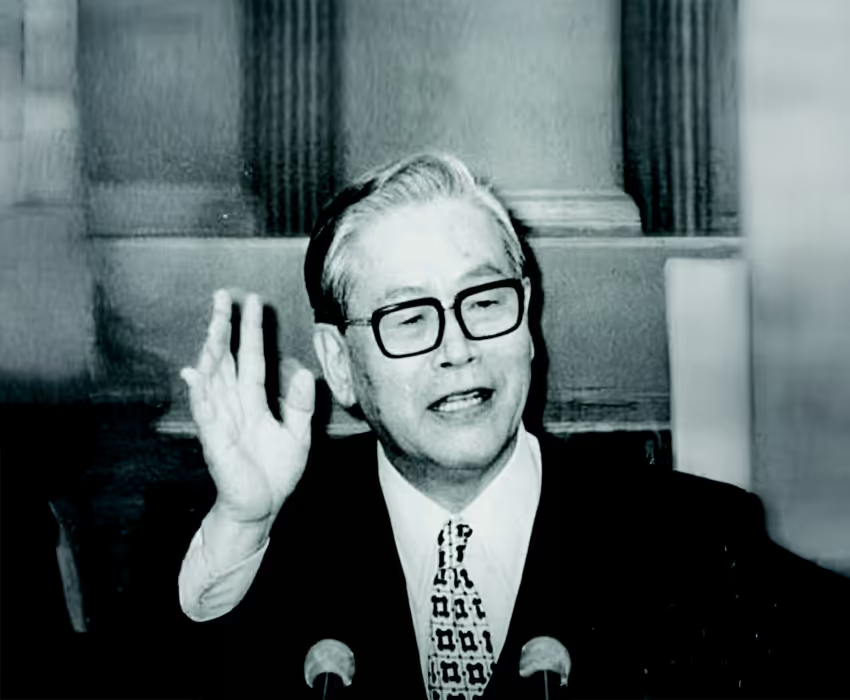



At the time of the March 1st Movement in 1919, Dr. Chyung Yil-hyung (age 16) made and distributed approximately 5,000 copies of the Taegukgi, the national flag of Korea, and consequently was jailed at the Pyongyang Police Station with the leaders of the protest. Since 1937, he worked as a professor at his alma mater Yeonhui College, as well as Soongsil College and the Methodist Theological University, but was arrested by the Japanese police in 1940 with charges of leading anti-Japanese activities, such as opposing shrine worship and resisting the forcefully change of Korean names to Japanese names. Until liberation, he endured a total of twenty imprisonments over five years under Japanese rule and welcomed the liberation of his country after the long struggle for independence from Japan.
In 1935, he received a Ph.D. in Philosophy from Drew University in the United States. After returning to Korea, he served as a professor at the Methodist Theological University while fostering young pastors by establishing the Joongang Theological Seminary. Furthermore, he devoted himself to promoting the religious faith-based anti-Japanese movement and rural enlightenment through missionary work to improve the grim conditions of rural life under colonial rule. Dr. Chyung Yil-hyung strived to embody his ‘Christian identity’ and to realize its values and purposes in both pastoral and political spheres.
In 1948, after the establishment of the government, he served as a member of South Korea’s first special envoy and earned UN recognition of the Government of the Republic of Korea as a representative to the 3rd Paris UN General Assembly held in October of the same year. Furthermore, working as the President of the United Nations Association of the Republic of Korea (UNA-ROK) in 1949, he succeeded in registering the Republic of Korea as an associate member of the United Nations with his participation in the 6th UN General Assembly in 1951. This laid the foundation for Korea’s official membership in the UN later in 1991.
In 1950, he entered politics by being elected as a lawmaker of the 2nd National Assembly (Jongro/Junggu district), performed legislative activities and diplomatic duties as the Chairman and executive member of the Foreign Affairs Committee in the National Assembly, and formed the ‘Association for the Preservation of the Constitution’ by uniting the democratic forces of the opposition parties in 1954. In 1955, serving as the Chairman of the Democratic Party’s founding committee, he fought against the dictatorship of the Liberal Party, leading to the creation of the Democratic Party that has been active for seventy years to this day. With the establishment of the Second Republic following the pro-democracy revolution of April 19, 1960, he became a member of the 5th National Assembly (Junggu Eul district) and simultaneously served as the Minister for Foreign Affairs as an executive member of the Cabinet. In 1963, he was elected to the 6th National Assembly, but resigned from office in 1965 in opposition to the humiliating and discriminatory Korea-Japan Treaty on Basic Relations. In 1967, he entered the 7th National Assembly and was appointed the Vice President of the New Democratic Party and became the Acting Party Leader in 1973. He was also elected to a seat in the 9th National Assembly, thus becoming an eighth-term National Assembly member. With this, he set the record for the most elected lawmaker in a single constituency in Korean parliamentary history and the longest service in parliament.
In 1969, Dr. Chyung Yil-hyung led the fight against the constitutional amendment that would allow long-term dictatorship with three consecutive terms in office by then-President Park Chung-hee.In 1974, during the National Assembly’s interpellation session, he asked President Park Chung-hee, “Why does the finite human leader try to rule an infinite government of the people forever?” and called for the resignation of the President by holding him responsible for seven misdeeds, including long-term rule. In March 1976, Dr. Chyung Yil-hyung was sentenced to three years in prison for participating in the March 1st Declaration for National Salvation against the Yushin politics at the Myeongdong Cathedral with his wife, Dr. Lee Tai-young. He was disqualified from his seat in the National Assembly, while his wife was disbarred from practice. Despite many restrictions and threats to his activities, Dr. Chyung Yil-hyung fought at the forefront of the opposition party, devoting himself to fighting against dictatorship and for democracy.
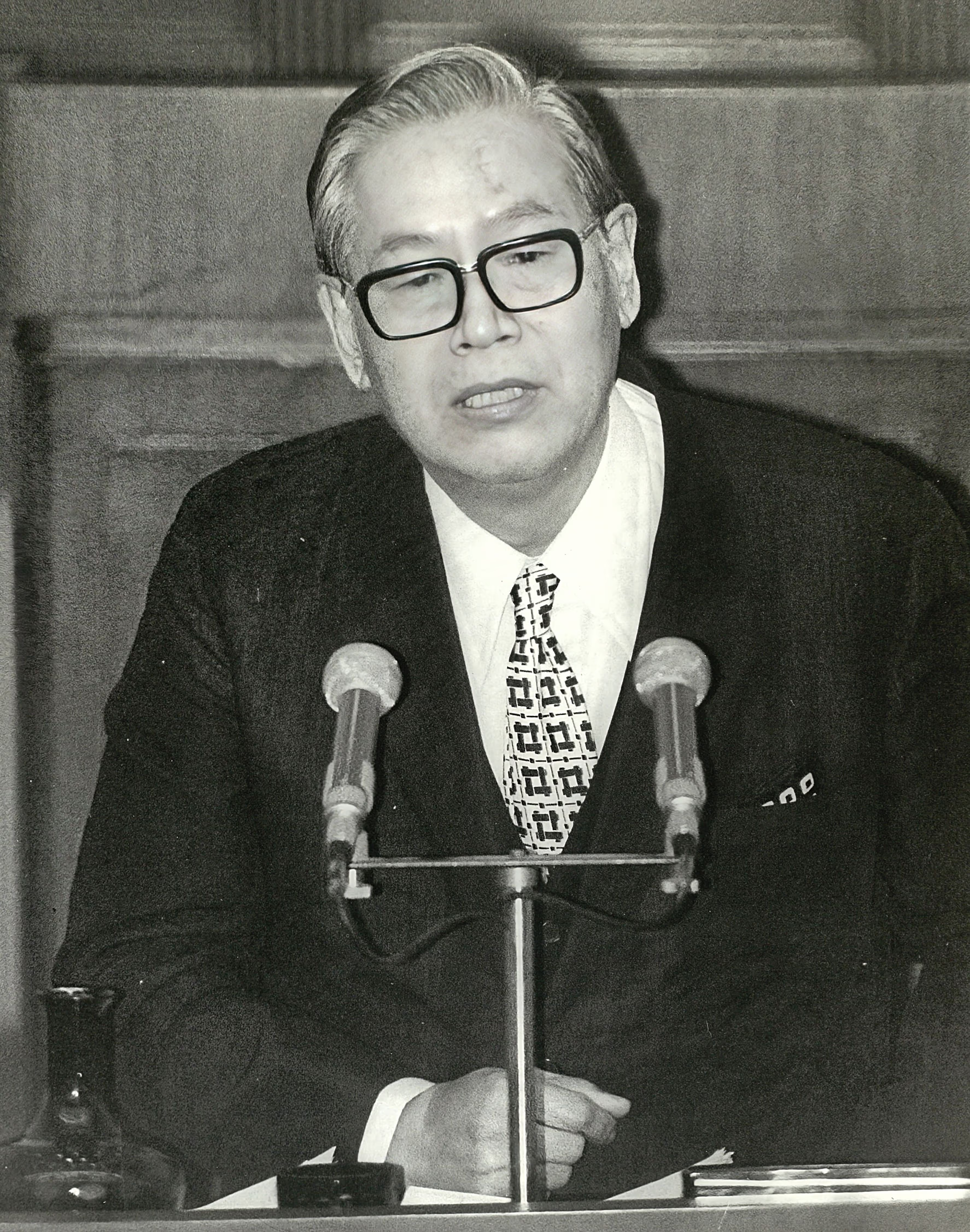
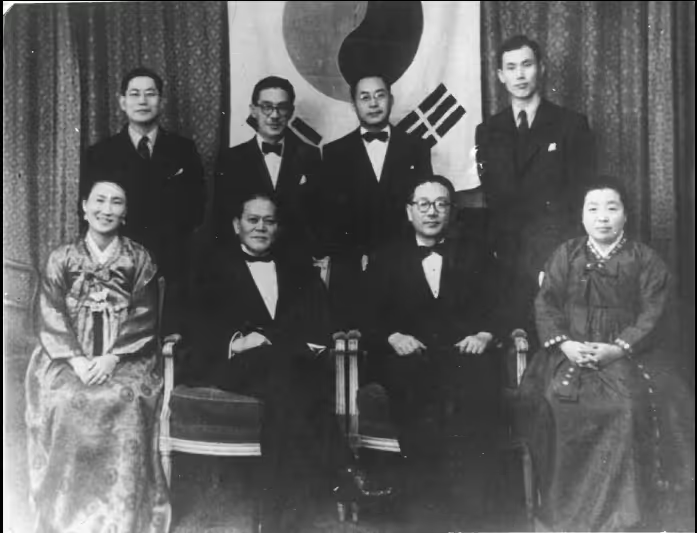



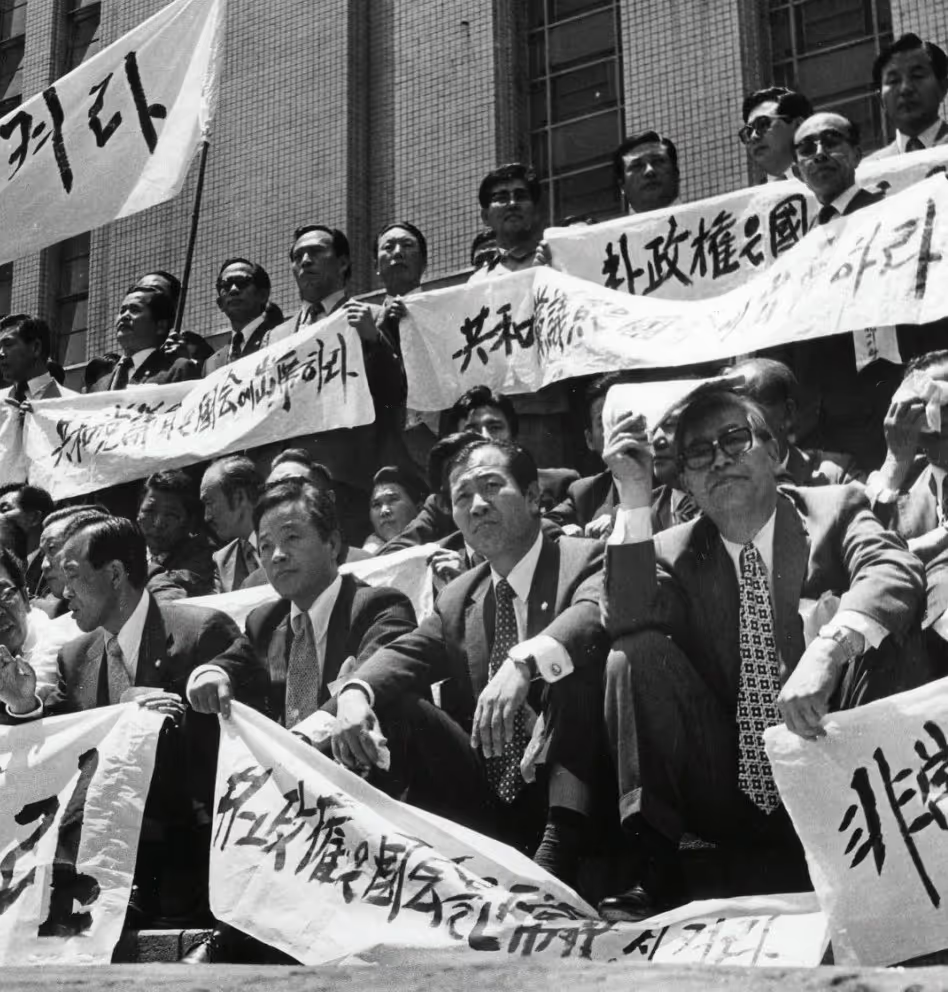




.avif)
